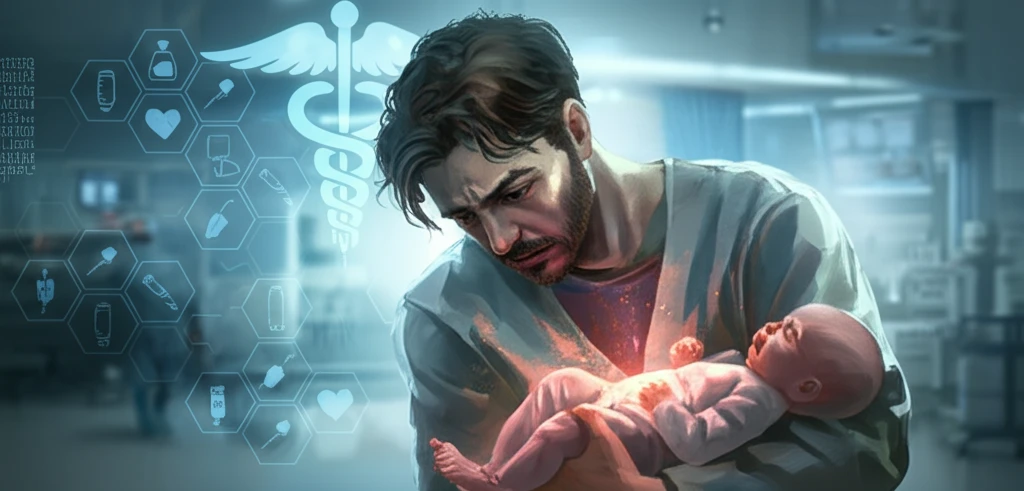
Unexplained Abdominal Pain in Infants: Could It Be a Spontaneous Colon Perforation?
"Recognizing the Signs and Seeking Prompt Treatment for Spontaneous Colon Perforation in Infants and Children"
As a parent, you're likely familiar with the common causes of tummy troubles in infants and young children. But what happens when your child experiences sudden, unexplained abdominal pain and distension, especially if they've been recently hospitalized for a seemingly unrelated issue like a fever or respiratory infection? In rare cases, this could be a sign of spontaneous colon perforation (SCP), a condition that requires prompt medical attention.
Spontaneous colon perforation, or SCP, refers to a tear in the colon that occurs without an obvious cause, such as trauma or a pre-existing disease. While more commonly seen in newborns as necrotizing enterocolitis, SCP can occur in older infants and children, often unexpectedly. This article aims to shed light on this rare but serious condition, helping parents recognize the signs and understand the importance of quick action.
Drawing from a study published in the journal Pediatric Gastroenterology, Hepatology & Nutrition, we'll explore the clinical implications of SCP, focusing on how it presents in previously healthy infants and children. By understanding the potential link between seemingly unrelated health issues and the sudden onset of abdominal symptoms, you can be better prepared to advocate for your child's health.
What is Spontaneous Colon Perforation (SCP) and Why Does It Happen?

Spontaneous colon perforation (SCP) is defined as a sudden perforation of the normal colon in the absence of disease or injury. It's a rare condition, making it difficult to diagnose and often leading to delays in treatment. While the exact cause of SCP remains unclear, researchers propose several contributing factors.
- NSAID Use: The use of non-steroidal anti-inflammatory drugs (NSAIDs) to manage fever and pain during these prior hospitalizations may play a role. NSAIDs can increase intestinal permeability and promote the production of toxic-free acids, potentially weakening the colon wall.
- Infections: Viral gastroenteritis and respiratory tract infections were also common reasons for the initial hospitalization. These infections may contribute to inflammation and stress on the colon, increasing the risk of perforation.
- Idiopathic Factors: In many cases, there's no identifiable underlying cause, and the perforation is considered idiopathic. This means it occurs spontaneously without a clear trigger.
The Importance of Early Detection and Prompt Treatment
Spontaneous colon perforation is a rare but serious condition that requires prompt diagnosis and treatment. If your infant or young child experiences sudden abdominal pain and distension, especially after a recent hospitalization for fever, respiratory issues, or gastrointestinal problems, it's essential to seek immediate medical attention. Early detection and prompt surgical intervention can significantly improve the outcome and reduce the risk of complications.
